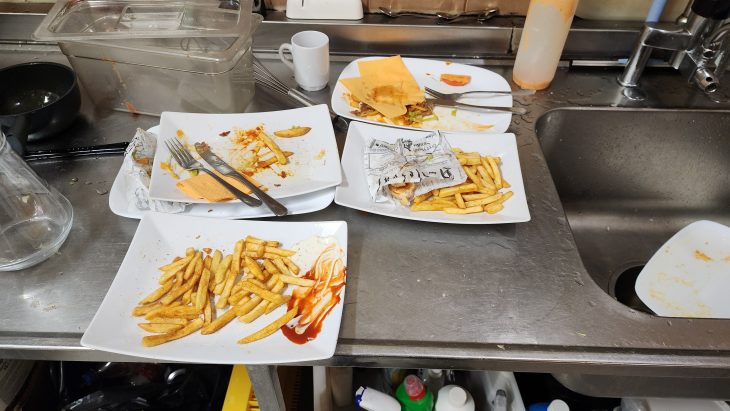
From Farm to Table: “The Journey of Food and the Need to Minimize Waste Along the Way”
Vol.25 Issue 19, 17 March 2023

Food wastage is a major issue that has been plaguing the restaurant industry for the years. Restaurants play a significant role in this food wastage problem. Food waste occurs at various stages in a restaurant’s operations, including the kitchen, the dining area, and the storage areas. The causes of food waste in restaurants are numerous and often interrelated, including overproduction, over purchasing, spoilage, customer waste. Overproduction is one of the main reasons for food waste in restaurants. Restaurants often prepare massive quantities of food to meet demand, and this can lead to food waste if the food is not sold. This is a common issue in buffet-style restaurants, where food is prepared in massive quantities, and many leftovers are discarded. Over-purchasing is another reason for food waste in restaurants. Restaurants often purchase massive quantities of food to ensure they have enough stock, but if the food is not used before it expires, it is thrown away. This is particularly true for perishable items such as fruits and vegetables. Spoilage is another cause of food waste in restaurants. Food that is stored correctly or is left to sit for too long can spoil, leading to waste. This can happen in the kitchen or in storage areas, such as refrigerators and freezers. Finally, customer waste is another issue that contributes to food waste in restaurants. Customers often leave food on their plates, which is then thrown away. This can be due to over-portioning, a lack of appetite, or personal preferences. To prevent food waste, restaurants can take several actions. One way is to reduce portion sizes and offer small servings. This can help to reduce food waste while also promoting healthier eating habits. Restaurants can also donate their excess food to food banks or charities. This can help to reduce food waste while also helping those in need. Finally, restaurants can educate their staff and customers on the importance of reducing food waste and the steps they can take to do so.
- Educate Staff and Customers: Restaurants staff and customers can play a significant role in reducing food waste. Educating staff on the importance of sustainability and proper food handling techniques can help reduce spoilage and waste. Similarly, customers can be encouraged to order only what they need, take home leftovers, and consider smaller portion sizes of meals.
- Compost food waste: Composing is a sustainable way to dispose of food waste. Restaurants can compost food scraps and use the compost for gardening or donate it to local community gardens.

In conclusion, food wastage is a significant issue in the restaurant industry and restaurants can take steps to reduce food wastage. Leaving meals on plates at restaurants or at home can be seen as a bad habit as it can lead to food waste and may be considered disrespectful to the efforts of the restaurants and the people who prepared the food. However, there can be valid reasons for leaving food, such as feeling too full or being unbale to finish the meal due to dietary restrictions or personal preferences. In general, it is best to order what you think you can finish and to mindful of food waste, but if you do end up leaving food, it is important to do so respectfully and with consideration for the environment and the resources that went into producing the food.
Thank you, Readers.
Amandeep Kaur Brar
DIB2k22

- Web Series Review- The Vikings - 21st April 2023
- Easter- A Season of Renewal and Hope - 14th April 2023
- Exploring Reima’s Design and Innovation - 7th April 2023
